Between Hollyhocks and Stone – A Summer Day in Talmont-sur-Gironde
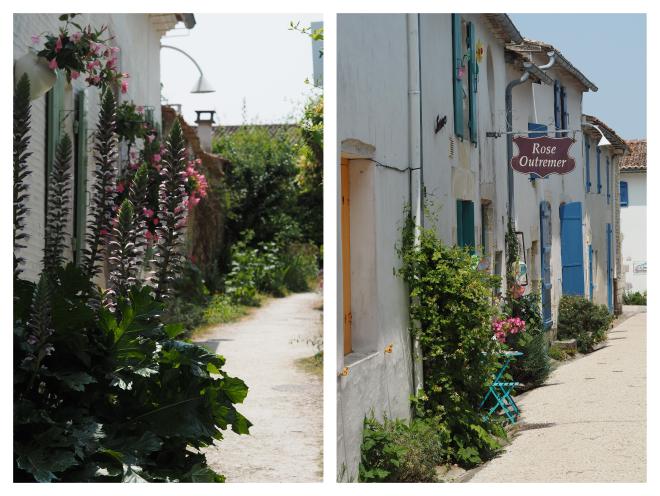
Flea Market in Talmont-sur-Gironde #
Whit Monday, June 9 – beneath the shade of two large trees, a long table is set with colorful dishes and half-emptied carafes. The air is filled with voices, the clinking of cutlery, and the giggle of a child playing hide-and-seek between an old rocking horse and a traffic sign. All around, flea market treasures are scattered as if by chance: tin signs, faded postcards, a green toy scooter with rusty handles. And right in the middle, as if it were the most natural thing in the world, a few vendors enj…
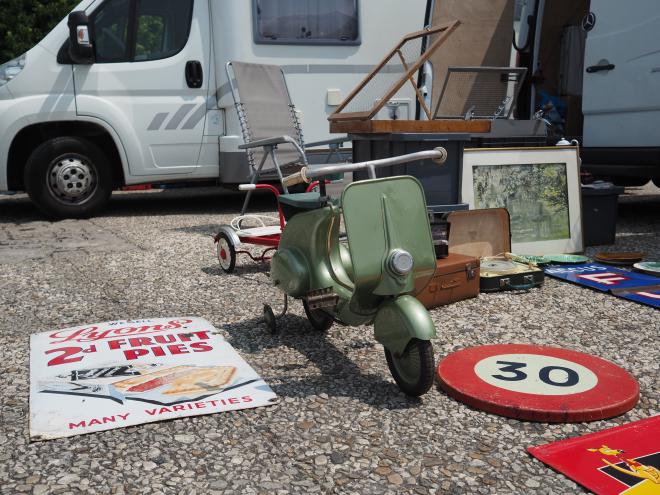
A village straight out of a storybook – but instead of curated tourism, we encounter real life. And that’s exactly what makes Talmont-sur-Gironde so special.
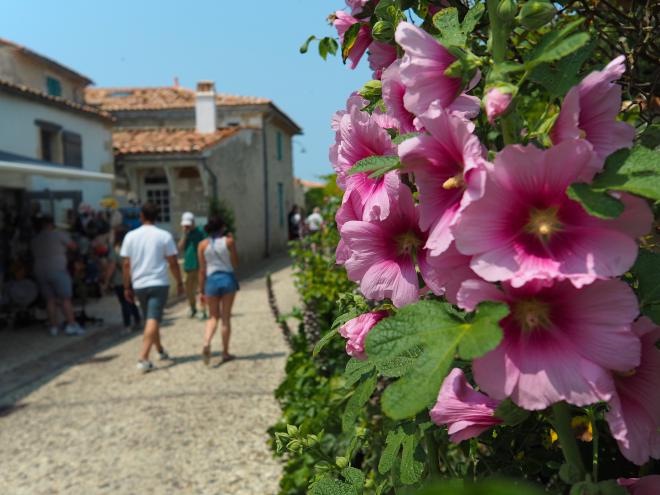
Wandering Through the Lanes #
Buoyed by the clatter of dishes and laughter beneath the trees, we let ourselves drift through the narrow lanes. Gravel crunches underfoot, and the midday sun paints bright patches on the walls. On the left, a small pottery shop tempts us with colorful flowerpots, sun-colored plates, and gracefully curved jugs – each one a unique piece, ready to elevate the next picnic.
Across the way, a wooden sign leans against the wall: “Créations en bois flotté.” An atelier devoted entirely to driftwood. In the doorway hangs a seahorse, carefully assembled from sun-bleached wood, mounted on a sky-blue shutter. The color, the light, the shape – for a brief moment, I’m not here anymore, but in a narrow alleyway in Santorini.
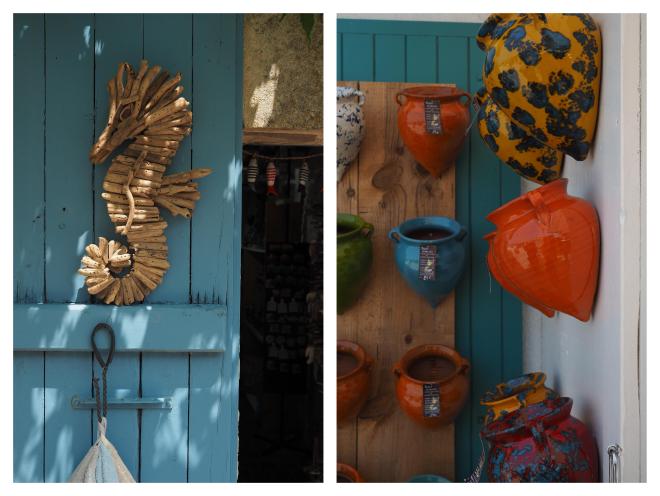
A Cemetery With Character #
At the end of the lanes stands the church of Sainte-Radegonde – sturdy, built from pale stone, with a commanding view over the Gironde estuary. The wind carries the salty breath of the river.
We lean on the hip-high wall of the old cemetery. Below: a patchwork of weathered stones, crooked crosses, and wild blooms. Hollyhocks, lavender, tall grasses – as if nature herself had taken over the gardening. No gravel paths, no neatly trimmed hedges – just a living carpet, laced with transience and defiance.
A place that doesn’t feel neglected – but free. Quietly present.
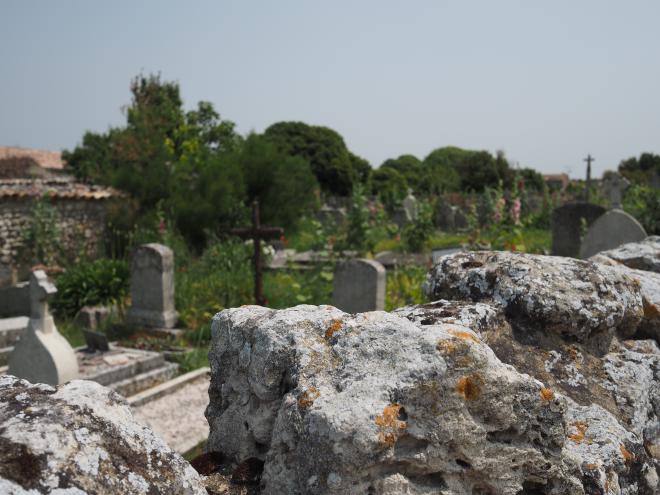
::: info Who was Sainte-Radegonde?
Sainte-Radegonde was a Thuringian princess of the 6th century who became venerated as a saint. After the murder of her family by her husband, the Frankish King Chlothar I, she fled court life and dedicated herself to the poor and sick. In Poitiers, she founded a convent and was later canonized.
The church in Talmont-sur-Gironde bears her name – a rare historical link between France and Germany. :::
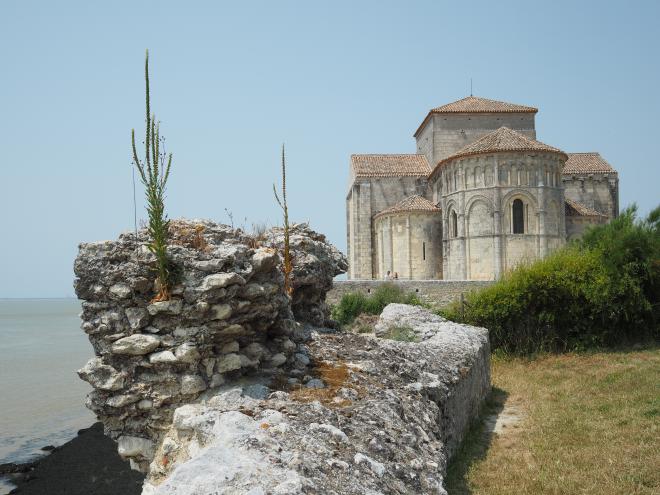
A Final View of the Water #
A few steps further, the view opens – to the water, and to the carrelets, those wooden fishing huts on stilts, with broad net arms that hang like resting wings over the Gironde. I balance along the railing, searching for the right angle, the perfect light. Sometimes from below, sometimes through the branches, sometimes backlit. Trying to capture a feeling that can only be sensed: a blend of wind, wood, salt, and light.
Behind me lies a small park where others have already settled into calm. Some nap in the shade, others unpack cheese, baguettes, and apricots from picnic bags. Soft laughter, rustling paper – the sound of a day in no hurry.
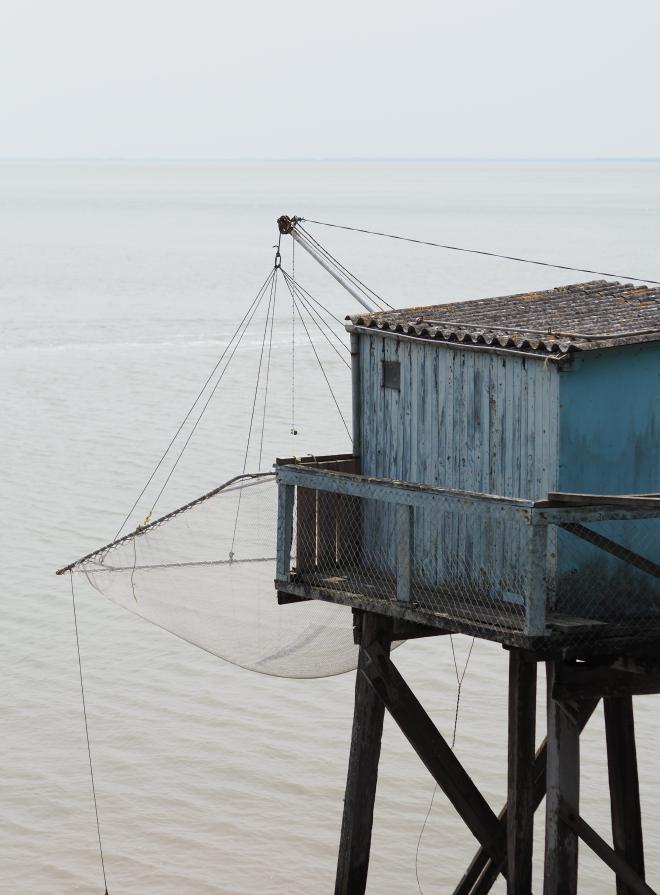
Sometimes it’s enough to stand still – and the scene photographs itself.
::: info What are “carrelets”?
“Carrelets” are traditional fishing huts on stilts with large square nets that are lowered over the water using long arms. This method of fishing is typical of France’s Atlantic coast and is part of the landscape – especially along the Gironde estuary.
Today, many of these huts are used more for photography than fishing – yet they quietly tell of a time long gone. :::